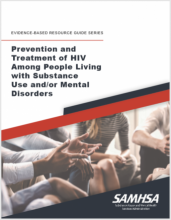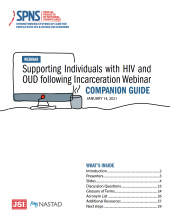
Harm Reduction Hacks is a comprehensive microsite and resource to guide organizations developing new and/or existing syringe services programs in program design, implementation, and organizational sustainability.



Harm Reduction Hacks is a comprehensive microsite and resource to guide organizations developing new and/or existing syringe services programs in program design, implementation, and organizational sustainability.
Harm reduction strategies and tools should be accessible to everyone – regardless of location, time, and/or experience.
This publication describes the recent trends of drug overdose deaths in the United States (U.S.) and the benefits of adopting harm reduction approaches.
This newly released national strategy confronts the rising rates of opioid and non-opioid related fatal overdoses.
This CDC report provides updated data related to HIV prevalence among people who inject drugs, documenting findings that underscore the need for low-barrier access to comprehensive and integrated needs-based syringe service programs for necessary prevention and
This PowerPoint slide deck reviews the foundations of harm reduction philosophy and practice, summarizes drug user health issues and trends, and aims to increase cultural competence and humility when working with people who use drugs.
This package is a learning tool designed for health departments and community-based organizations newly offering syringe services programs (SSPs) with the purpose of indexing the materials needed for safer injection, what to offer at a syringe services program, and how to explain what materials a
In Los Angeles, New York, Houston, Philadelphia, and Washington, D.C., a National Institutes of Health funded clinical trial, known as INTEGRA, is evaluating the efficacy of delivering integrated HIV and substance use disorder care via mobile clinics.
Transgender people and communities, including nonbinary people, have specific needs within harm reduction programs.
For Boston Health Care for the Homeless nurse Megan Sonderegger, providing client-centered care means literally meeting her clients where they are.